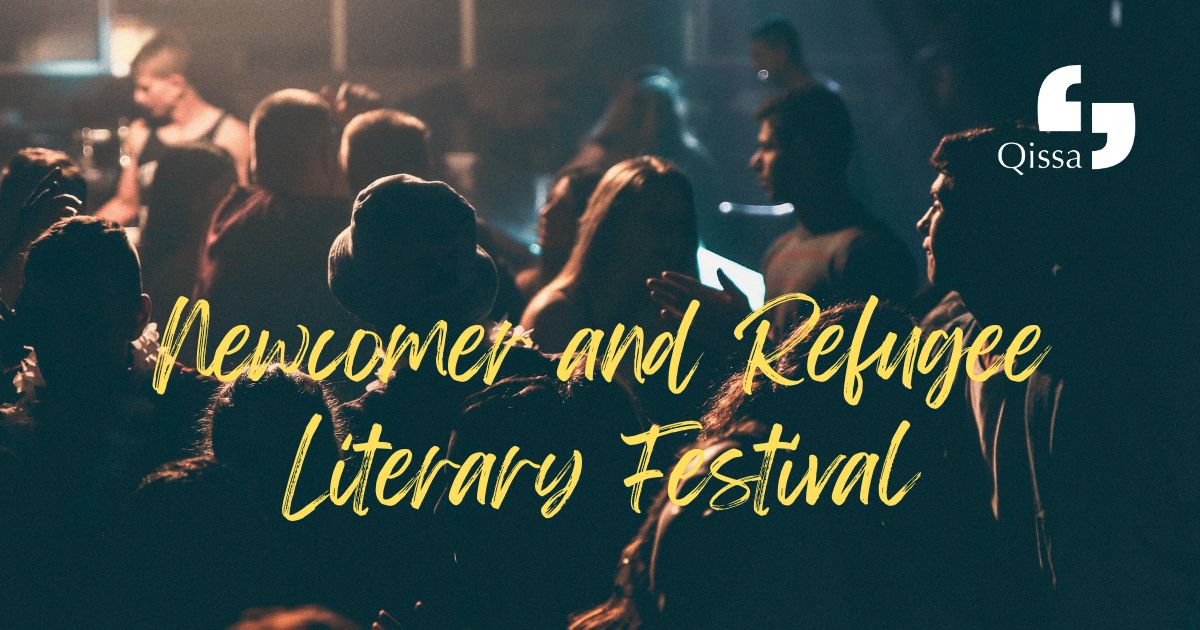
The Newcomer and Refugee Literary Festival is a one-day, in-person event taking place on March 29, 2026, at Small World Music in Toronto.
It will feature panels and performances by newcomer and refugee writers, exhibiting their new work developed through a series of co-created workshops held in January, February, and March 2026 at the Centre for Social Innovation (CSI).
The festival is an invitation to rethink how support for newcomer and refugee artists is often framed. Many well-intentioned programs focus on “upskilling,” while overlooking the deep expertise and creative experience that many newcomers already bring. In the arts, this often shows up in the blanket use of the term emerging—a label that can erase years, even decades, of accomplished work. These narratives shape how opportunities are structured.
The Newcomer and Refugee Literary Festival creates space for artists to define their own needs, challenges, and priorities. Through panels, performances, and co-created workshops, the festival invites a wide range of audiences—publishers, arts funders, community organizations, and newcomer and refugee communities themselves—into a conversation about access, equity, and representation.
The festival offers a space for real dialogue, creative exchange, and collective reimagining—where institutions, communities, and individuals can listen, connect, and move towards building a more inclusive ecosystem.
A key component of the festival is co-creation by participating writers. The workshops and festival panels will be co-designed by the participating writers, ensuring that the process reflects their voices, priorities, and creative visions.
A Curated Audience
The festival audience is intentionally curated to encourage real dialogue and action across sectors:
– Publishers, magazines, and literary agents will have opportunities to connect directly with participating writers—opening doors to publishing and networking possibilities.
– Arts councils, funders, and settlement agencies are invited to attend and listen—using the festival as a moment of reflection on how systemic barriers manifest in the arts and where meaningful change can occur.
– Immigrant and refugee audiences are equally central to this space—hearing stories and struggles that mirror their own, finding solidarity, validation, and a sense of belonging through shared experience and artistic expression.
Supported by the Toronto Arts Council Strategic Funding, the festival will also lend to Qissa’s Creative Canada oral history project. The writing developed through the workshops will be published as a collective anthology.
If you work in publishing, media, arts funding, or settlement, and would like to attend or get involved, we’d love to hear from you.
Meet the Writers
Mostafa Al-A’sar – Journalist, PEN Canada Writers in Exile member, and human rights defender. Mostafa spent nearly four years in political prison in Egypt, where he was detained and tortured for his journalistic and human rights work. Forced into exile, he now lives in Toronto.
Salman Haider – Poet, playwright, and satirist in exile, with performances and publications in Pakistan, the U.S., and Canada. Detained and tortured for his outspoken work, he continues to use satire and poetry as acts of resistance and survival. He holds a PhD in Psychology.
Sana’a Jaber – Award-winning filmmaker and writer whose work explores exile, resilience, and motherhood. With over two decades in film and television, she creates fiction and memoir that give voice to women and refugees.
Tala Motazedi – Queer Iranian screenwriter, playwright, and novelist who was PEN Canada’s 2024 Writer-in-Residence. Her writing explores identity, belonging, and queerness within and beyond exile.
Ahmer Naqvi – Multidisciplinary writer and broadcaster whose work examines popular culture, migration, and diasporic identity across South Asia and Canada.
Blessing O. Nwodo – Multidisciplinary storyteller and feminist activist whose work spans immersive exhibitions, films, sonic storytelling, and literary writing. A prize-winning writer and filmmaker, she blends creative expression with sharp communications expertise across digital marketing, editorial work, and narrative strategy.
Harleen Singh – Author of The Lost Heer, a reimagining of Punjab’s folklore that highlights women’s resilience and contributions often overlooked in colonial narratives.

